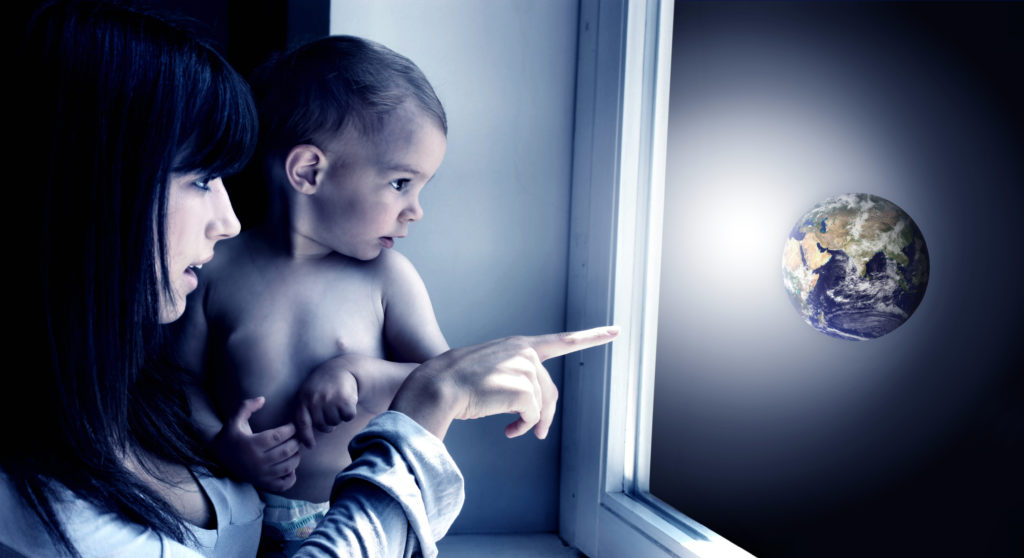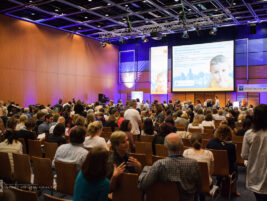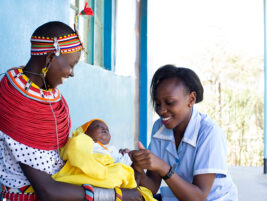Caught in the crossfire of grownup politics, babies and children are traumatized, or maimed, or murdered – in Gaza, Syria, a Malaysian jet, in the U.S. heartlands, at its border and across the world. We all want to protect the babies and children, but how?
In other desperate times, leaders like Nelson Mandela and Martin Luther King were able to restore hope and inspire action that changed the world. Perhaps their responses to past challenges can help us find our way today.
Q. 1. What is going on?
A. I refuse to accept the view that mankind is so tragically bound to the starless midnight of racism and war that the bright daybreak of peace and brotherhood can never become a reality… I believe that unarmed truth and unconditional love will have the final word.
Martin Luther King, Jr., Acceptance Speech on the occasion of the award of the Nobel Peace Prize in Oslo, December 10, 1964
Q. 2. Where does it start?
A. No one is born hating another person because of the color of his skin, or his background or his religion. People must learn to hate, and if they can learn to hate, they can be taught to love, for love comes more naturally to the human heart than its opposite.
Nelson Mandela, The Long Walk to Freedom, 1994
Q. 3. Can reflection help lead to healing and peace?
A. We must develop and maintain the capacity to forgive. He who is devoid of the power to forgive is devoid of the power to love. There is some good in the worst of us and some evil in the best of us. When we discover this, we are less prone to hate our enemies.
Martin Luther King, Jr., Where Do We Go From Here? 1967
Q. 4. When a nation fails to deploy every possible resource to protect its children, it has lost its moral compass. When a nation harms its children, it has lost its way. How do we find ours?
A. We must learn to live together as brothers or perish together as fools.
Martin Luther King, Jr., Speech in St. Louis, Missouri, March 22, 1965
Q. 5. The survival and wellbeing of the world’s children is the shared responsibility of all humanity. Can babies help bind us together?
A. There can be no keener revelation of a society’s soul than the way in which it treats its children.
Nelson Mandela from the launch of the Nelson Mandela Children’s Fund, Mahlamba Ndlopfu, Pretoria, South Africa, 8 May 1995
Q. 6. One of the most destructive results of relentless terror is that it can inure us to its effects. Fear and hopelessness so readily lead to paralysis and silence. Can our voices help restore hope?
A. Our lives begin to end the day we become silent about things that matter.
Martin Luther King Jr., in I Have a Dream: Writings and Speeches That Changed the World, James M. Washington (Editor), 1986
Q. 7. What can we do when our most fundamental beliefs and values are trampled? What can we say when we speak out?
A. We pledge ourselves to liberate all our people from the continuing bondage of poverty, deprivation, suffering, gender and other discrimination.
Nelson Mandela, Inaugural speech, Pretoria, May 11, 1994
(It seems reasonable to think that Mandela may have been speaking here for all people about all people.)
Q. 8. How do we take action when the challenge seems insurmountable?
A. Human progress is neither automatic nor inevitable… Every step toward the goal of justice requires sacrifice, suffering, and struggle; the tireless exertions and passionate concern of dedicated individuals.
Martin Luther King, Jr., Stride Toward Freedom: The Montgomery Story, Harper & Brothers, 1958
Q. 9. What can we do?
A. Courageous people do not fear forgiving, for the sake of peace.
Nelson Mandela in an interview with Anthony Sampson, published in “The Observer” (Sunday, May 1, 1994).
A. If you want to make peace with your enemy, you have to work with your enemy. Then he becomes your partner.
Nelson Mandela, Long Walk to Freedom, 1995
A. Darkness cannot drive out darkness; only light can do that. Hate cannot drive out hate; only love can do that.
Martin Luther King Jr., A Testament of Hope: The Essential Writings and Speeches, James M. Washington (Editor), 1986
Q. 10. Will we succeed?
A. It always seems impossible until it’s done.
Nelson Mandela, speech at Harvard University, 1998
Brazeltontouchpoints.org
Childrensdefense.org
Savethechildren.org
Unicef.org
WAIMH.org
What to do about the babies? Ten Questions for Nelson Mandela and Martin Luther King
Authors
Sparrow, Joshua,
Harvard Medical School,
Boston, USA,
joshua.sparrow@childrens.harvard.edu





